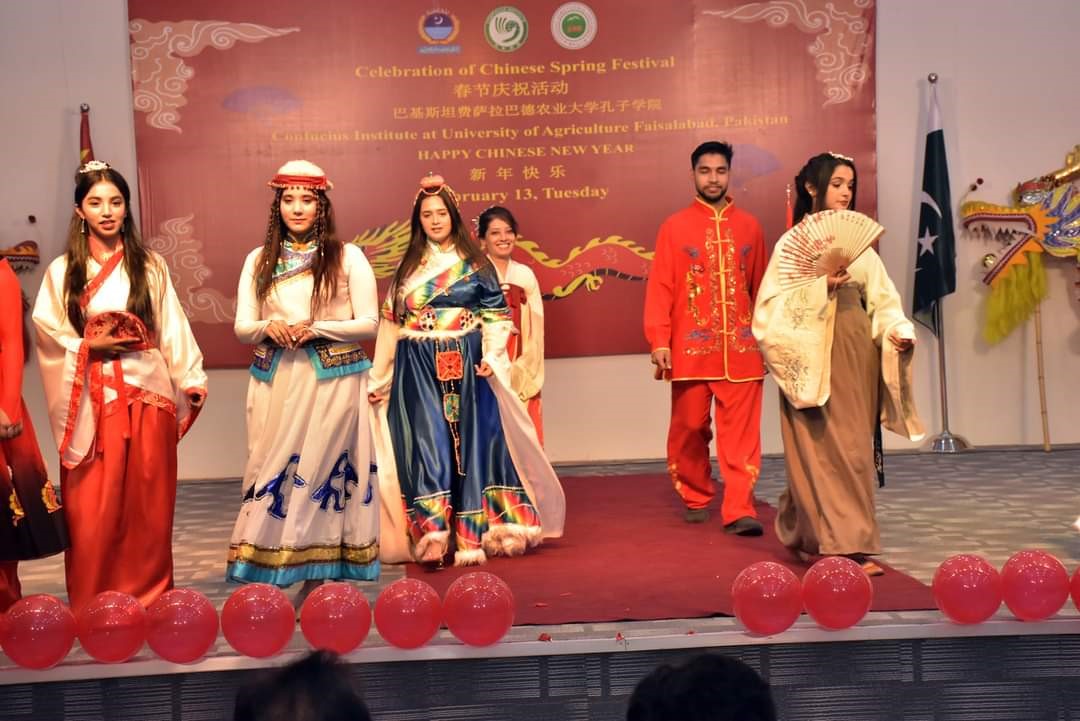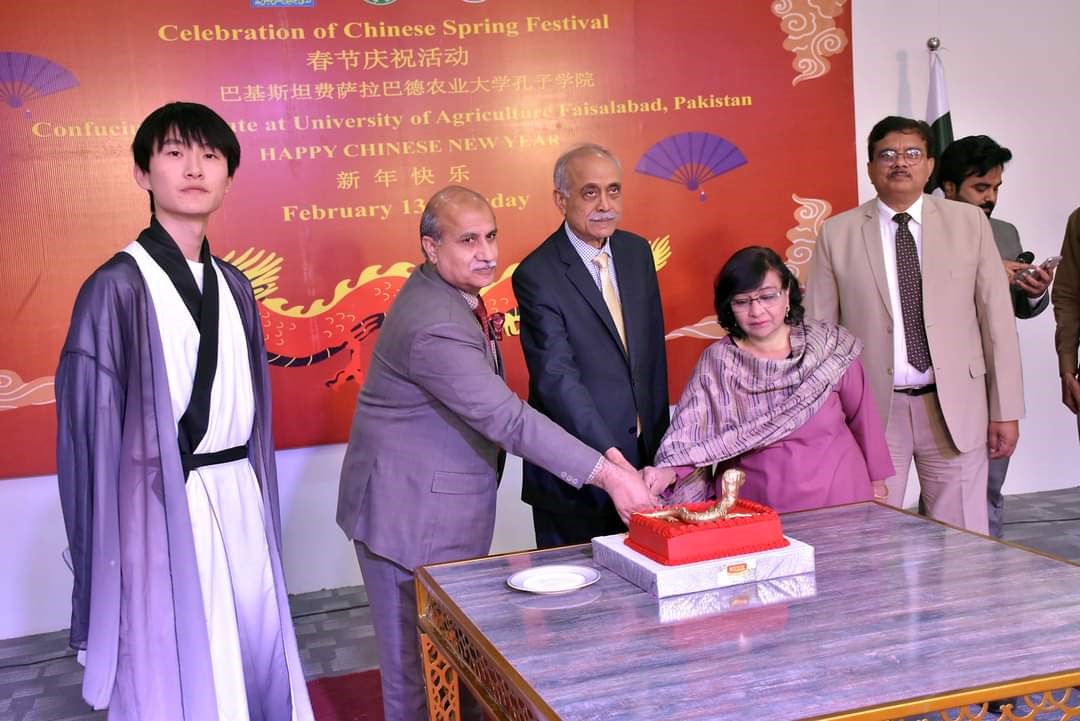Chinese New Year celebrated at Confucius Institute, UAF
FAISALABAD, Feb 14 (Gwadar Pro)– The Confucius Institute (CI) at the University of Agriculture Faisalabad (UAF) celebrated the Chinese New Year also known as Happy Spring Festival, bringing different performances of Chinese culture to the audiences.

Students performing during Chinese New Year Festival at Confucius Institute. [Photo/UAF]
The hour-long ceremony was celebrated on Tuesday, with UAF Vice Chancellor Prof Dr Iqrar Ahmad Khan as the chief guest. CI Chinese Dean Dr. Zhou Changming and CI Vice Chairman/Local Dean Prof Dr Zahir Ahmad Zahir also spoke at the event.
The students presented heart-touching performances of Chinese culture that attracted the audience. It comprised a Taiji performance, singing, a chopsticks contest, a Chinese cultural dress show and others that enabled the audience to get the delight of Chinese culture.
Dr. Zhou Changming said that the year 2024 is the Chinese year of the dragon and the dragon represents good fortune, prosperity, opportunity, wisdom, and energy, adding that it will be a great year for China and Pakistan’s friendship and cooperation.
Dr. Iqrar Ahmad Khan said that the CI-UAF had completed ten years and it has produced 5000 students so far in Chinese language courses. He added that CI has proved a hallmark in strengthening the academia, and research ties with Chinese institutions. He stressed upon the need to learn from China’s experiences in agriculture and economic development. He said that Chinese universities were proving their mettle globally in every field.

Vice-Chancellor and other officials cutting the cake. [Photo/UAF]
The Vice-chancellor further said that the UAF was enjoying excellent ties worldwide as it houses the Center for Advanced Studies, Pak Koran Nutrition Center, Seed Center, and others.
Dr. Zahir Ahmad Zahir said China-Pakistan was enjoying deepened and time-tested relations that are strengthened with the China-Pakistan Economic Corridor. He said that all possible measures were being taken to produce skilled manpower and to open up new avenues of development with bilateral ties.




